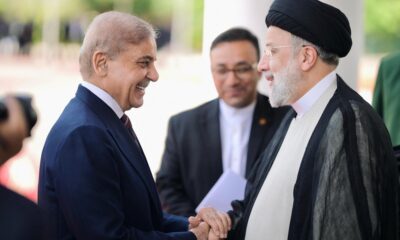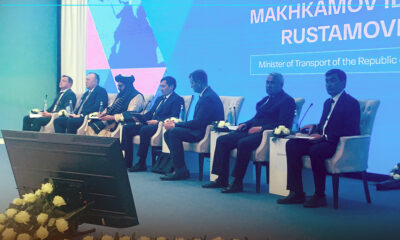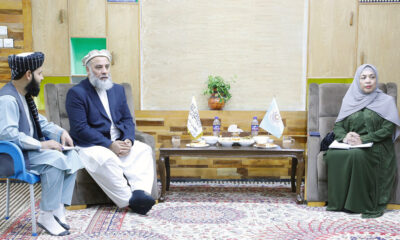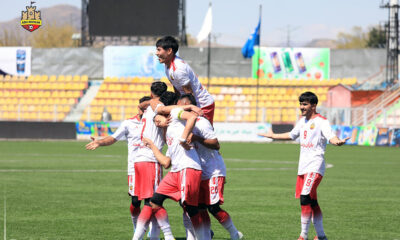Business
Minerals have become integral to conflict in Afghanistan: UNDP
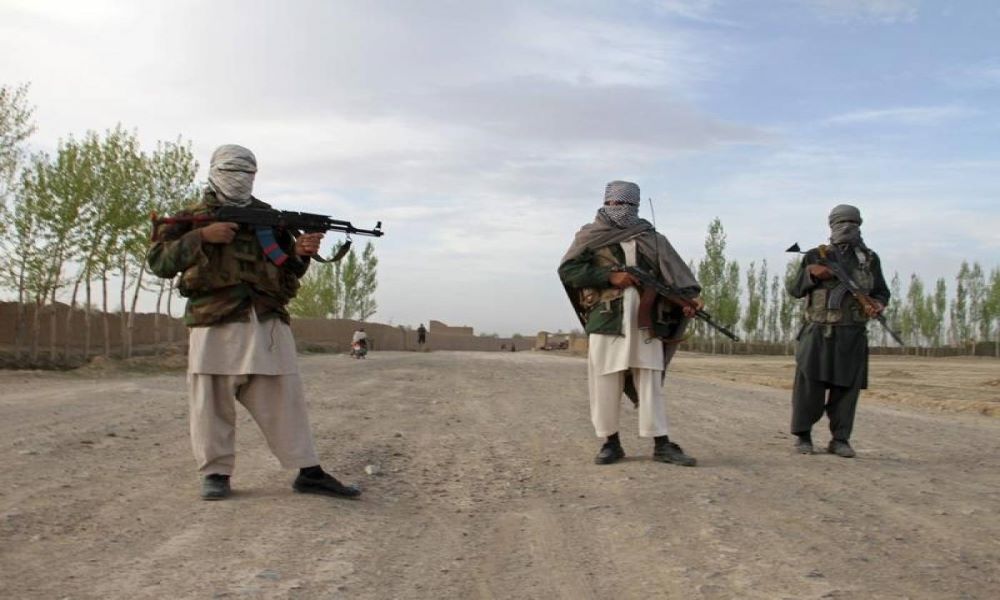
UNDP Afghanistan has found that decades of mining without a clear vision has done little to reduce poverty but has instead helped insurgent groups fund their wars, triggered local conflicts and harmed the environment.
Published on Tuesday, the UNDP’s National Human Development Report 2020 on minerals extraction in Afghanistan states that the country’s minerals extraction is poorly regulated, often illegal, and in many parts of the country is controlled by political elites, and by insurgents.
Based on extensive fieldwork, consultations and discussion, UNDP also found that illegal mining is a complex phenomenon, contributing to insecurity, corruption, human rights violations and conflict that affects the lives of citizens.
Afghanistan is richly endowed with mineral and hydrocarbon resources, which include base and precious metals, precious and semi-precious stones, rare earth elements, mineral rocks and industrial minerals, and energy resources.
At present these contribute little to the economy or society, mainly because they remain in the ground, but also because most of the mining is informal and illegal.
“If the country is to unlock the potential of its mineral wealth, the government and other stakeholders will need to strengthen the management of resources and ensure peace and security,” UNDP stated.
“Unregulated mining feeds and is fed by conflict. It has become the magnet of corrupt individuals and networks, and some mining businesses are implicated in serious human rights violations, often acting with impunity,” read the report.
“In Afghanistan, there is an urgent need to improve governance, tackle corruption and put an end to illegal extraction and trade of minerals,” said Abdallah Al Dardari, UNDP Resident Representative for Afghanistan.
“Large-scale mineral, oil and gas projects can be instrumental for financing development, but it will require stability and enhanced government capacity to get its due share from these projects and use them well for human development,” he added.
The report recommends that all partners implement programs demonstrating good practices, methods and technologies in mining.
Afghanistan’s Minister of Mines and Petroleum Haroon Chankhansuri meanwhile said: “I welcome the release of the report and look forward to our collaboration with UNDP and other partners on the opportunities explored by this report on the potential of economic growth through extractive industries.”
The minister added, “the recommendations on policy choices to ensure people benefit from and participate in extractive industries potential, and mitigating the risks associated with this type of development will be considered in the government’s plans for the sector.”
According to UNDP, the organization’s new programs, Afghanistan Sustainable Development Goals (A-SDGs) and Agenda 2030 is focused on transferring the war economy into a peace economy, and that the extractive sector is a key area for revenue generation and economic growth.
In 2010 the US Task Force for Business and Stability Operations estimated the monetary value of Afghanistan’s mineral resources at nearly $1 trillion.
But, according to the UNDP, since the 1980s, many mines have come to be controlled by networks of former jihadis who, after the defeat of the Taliban, have at different times acquired positions of influence within the government.
These networks often operate with impunity – openly and audaciously smuggling mineral resources out of the country, read the report.
“More recently, with the decline in international aid, and the reduced demand for new buildings, many well-connected construction companies have moved into the mining sector.”
Mining financing conflict
The report also stated mining has been financing conflict and that the control of minerals extraction by insurgent groups has meant that they have been financing and fuelling conflict while undermining the legitimacy of the Afghan government and further spreading corruption and violence.
“The group with the most extensive reach is the Taliban, but since 2015, other groups under the name of Islamic State of Khorasan (IS-K/Daesh) have joined the competition for minerals,” read the report.
For the Taliban, the extractive industry is the second-largest revenue stream after narcotics.
It collects taxes and ‘protection money’ from miners but more recently, the IS-K started tapping the mining sector when financial support waned from the central ISIS branch, the report stated.
One example cited was with talc-rich Nangarhar province where government, Taliban and IS-K actively contested the talc mining areas.
“For a mining company, the benefits of paying taxes to the government are limited, while the risks of not paying taxes to insurgents are enormous,” the UNDP stated adding that IS-K, in particular, is known for brutal sanctions for non-compliance.
“In addition to these groups, local militias, warlords, and occasionally security forces, are also levying taxes on minerals or are involved in illegal mineral extraction – directly or through associates and family members,” the report stated.
The UNDP stated that in areas controlled by insurgents, lucrative large-scale mining sites operate on an industrial scale then openly transport bulk minerals on large trucks along major roads and across the border to Pakistan.
“Governance of extraction is weakened by extensive corruption. Even where mining companies operate legally, there can be corruption in the issue of contracts,” the report stated.
According to UNDP, violations of human rights in regard to minerals extraction was also a problem.
“There have been documented cases of human rights violations by mining companies which are protected by networks of power brokers.”
Afghanistan is one of the world’s poorest countries – held back by decades of conflict but with prospects for peace, there will be greater opportunities for investing in human development.
The UNDP stated however that this will require taking full advantage of the country’s mineral resources.
“But it will require a determined and concerted effort to reform the country’s policies and institutions governing these resources. The ultimate objective of minerals extraction in Afghanistan should be sustainable human development and improvements in people’s well-being.”
CLICK HERE for the full report
Business
Azizi calls on Malaysian investors to invest in Afghanistan
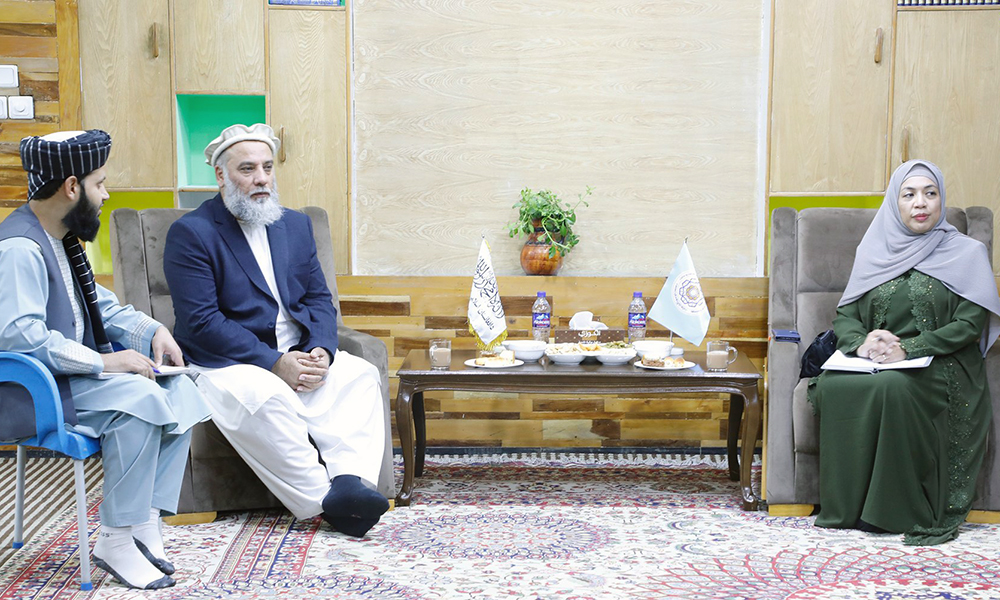
Nooruddin Azizi, Acting Minister of Commerce and Industry, met with representatives from the ministries of foreign affairs, defense and interior of Malaysia, along with other senior officials, on Wednesday and called on Malaysians to invest in Afghanistan.
The visiting delegation is being led by senior diplomat Dr. Shazelina Zainul Abidin.
According to the IEA’s foreign ministry, the two sides discussed bilateral trade, holding a business communication conference to strengthen trade relations between the two countries, the trade balance between Afghanistan and Malaysia, and creating a market for Afghan products, including carpets, cotton, and minerals.
According to the ministry, at the end of the meeting, the Acting Minister emphasized the increase of investment from regional countries in Afghanistan and called on Malaysian investors to also invest in Afghanistan.
Business
Afghanistan starts exporting via railway to Turkey

The Ministry of Interior says that Afghanistan has started exporting goods to Turkey via the Herat-Khaf railway line.
In a post on X, the ministry said: “Afghanistan’s exports to Turkey started in a calm atmosphere through the Herat-Khaf railway line.”
The ministry added that one train will run daily for a month and then two trains will run daily.
According to the ministry, the security of Khaf-Herat railway line is provided by the guards of the National Public Protection Agency.
Khaf-Herat railway project not only connects Iran and Afghanistan by rail, but also completes a 2,000-kilometer route along the east-west rail corridor from China, through Uzbekistan, to Afghanistan, to Iran, and on to Turkey and Europe.
As a landlocked country, this railway network will provide a safe route to connect with Europe via Iran’s railway network and Iran’s southern ports.
This railway line is strategic for trade between Iran and Afghanistan and will allow six million tons of goods to be sent between the two countries.
Business
Afghanistan, Kazakhstan to hold joint expo in Kabul
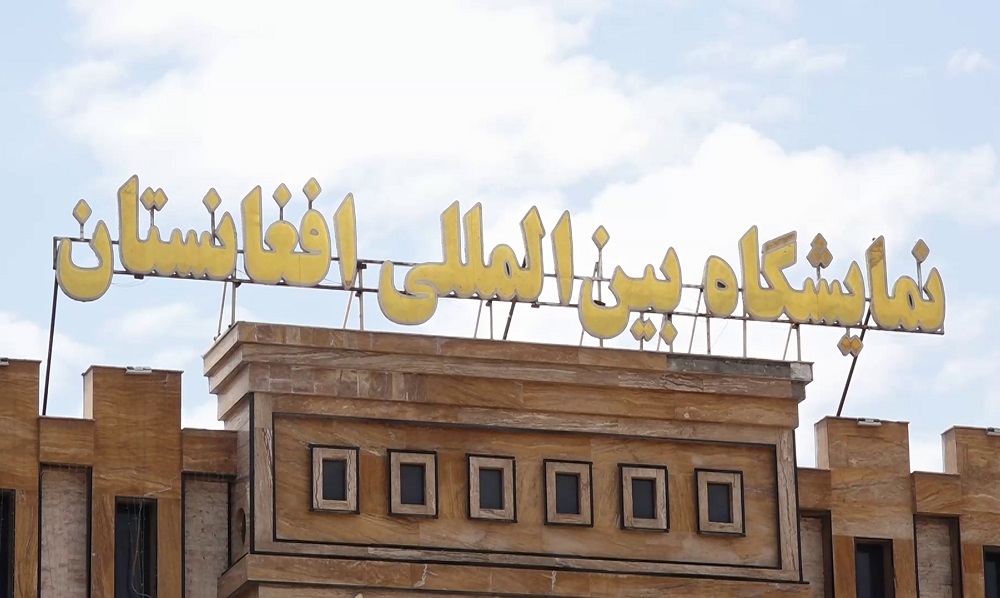
A joint expo between Afghanistan and Kazakhstan will be held in Kabul in the next four days, officials said on Sunday.
Officials of the Ministry of Industry and Commerce said that the two-day expo will be held for the purpose of expanding and strengthening trade relations between the two countries.
“This expo will be held as a follow-up of the Kazakh-Afghan international expo, which was held in the city of Astana, Kazakhstan, with the participation of a large delegation of the government and the private sector of the Islamic Emirate of Afghanistan,” Abdulsalam Javad Akhundzadeh, the spokesman of the Ministry of Industry and Commerce, said.
“At this expo, domestic products from different sectors of Afghanistan and the Republic of Kazakhstan will be put on display for two days.”
According to officials, 40 large Kazakh companies, and 40 large Afghan companies will exhibit their products.
Mohammad Saber Latifi, head of the Afghanistan International Expo Center, said that fruits, minerals and commercial services will be displayed at the expo.
During the expo, various memorandums of understanding for the trade of goods are also expected to be signed by companies.
-

 Sport4 days ago
Sport4 days agoAfghanistan Champions League kicks off with grand opening ceremony
-

 Regional5 days ago
Regional5 days agoIran’s foreign minister downplays drone attack, says Tehran investigating
-

 Latest News3 days ago
Latest News3 days agoPakistan’s frontiers minister stresses ‘dignified’ return of Afghan refugees
-

 Business5 days ago
Business5 days agoAfghanistan’s economic prospects are bleak: World Bank
-

 Latest News4 days ago
Latest News4 days agoMore than 800 Afghan refugees deported from Pakistan in two days
-

 Regional2 days ago
Regional2 days agoIranian president lands in Pakistan for three-day visit to mend ties
-

 Climate Change3 days ago
Climate Change3 days agoMassive river flooding expected in China, threatening millions
-

 Latest News4 days ago
Latest News4 days agoChinese keen to invest in Panjshir-Kabul water conduit project


